
Curator’s statement
Tanzania is privy to fascinating landscapes, from its savannahs to the Serengeti and Mt. Kilimanjaro. It is an explorer’s and nature lover’s heaven. Tanzania offers a chance to get close to all of its wildlife and feel like David Attenborough. This guide comprises various game drives, national parks and a six-day ascent up Kilimanjaro.
The Fora Difference
Book with Kim to access exclusive perks and experiences on your trip.
Killer perks
Free upgrades, spa credits and more—we got you
Personalized recs
Customized travel planning for your style
Insider knowledge
Expert advice from people who’ve actually been there
Where to stay
Unlock perks by contacting Kim to book your trip.
Day 1: Tarangire National Park Game Drive
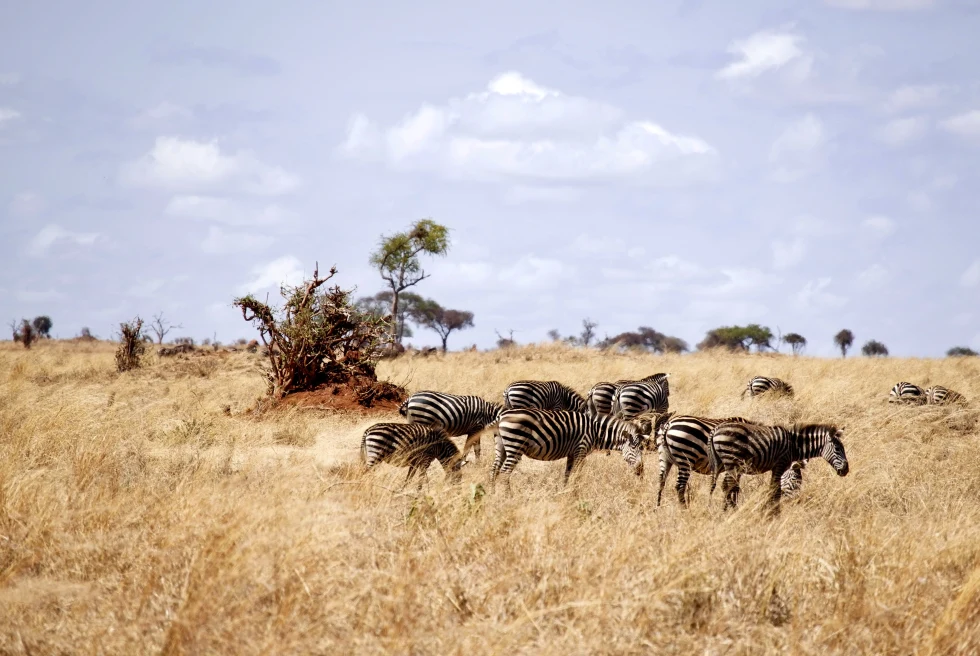
Tarangire National Park is one of the most incredible destinations in Tanzania, with access to world-class safari. Take a picnic lunch and enjoy your time just outside the park entrance before getting ready for your first game drive. The park is filled with elephants, giraffes, hippos and birds living amongst breathtaking landscapes.
Retire for the night at Maramboi Tented Lodge within the Lake Manyara National Park. There are wildebeest and zebras on the property and just outside the tent-like lodging. You must be escorted from your tent to the main property.
Day 2: Lake Manyara National Park
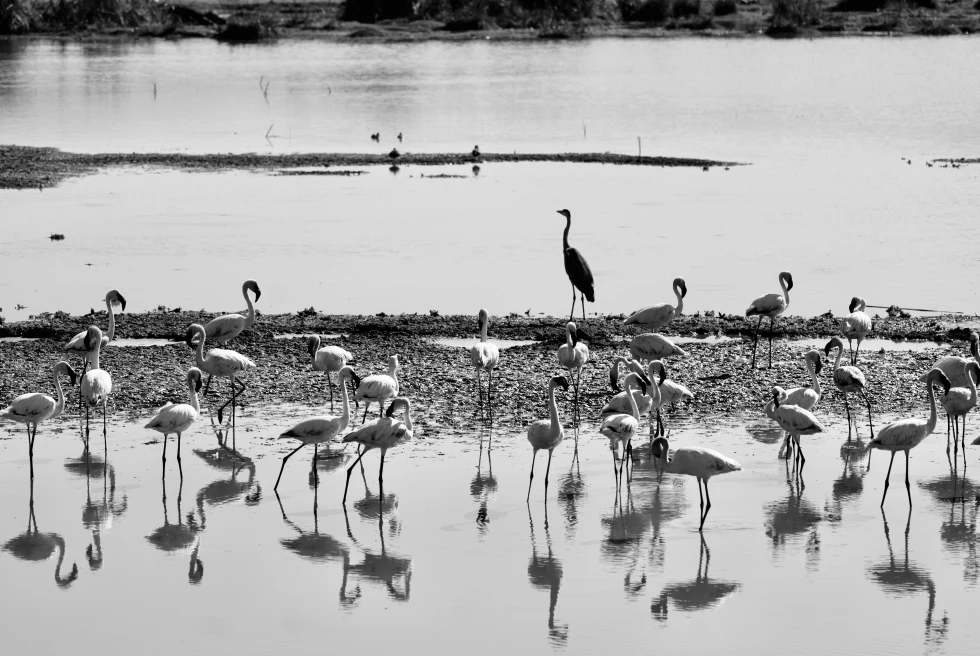
Day two of your game drive is located directly in the Lake Manyara National Park! This park is different from Tarangire, with more verdant vegetation and trees. Many animals hang out on the road.
Retire for the next two nights at Ngorongoro Farm House. This is a stunning working coffee plantation. They grow most of their own ingredients for the meals they prepare on the property.

A note from Kim
If you have time, take a coffee tour at the Farm House!
Day 3: Ngorongoro Crater
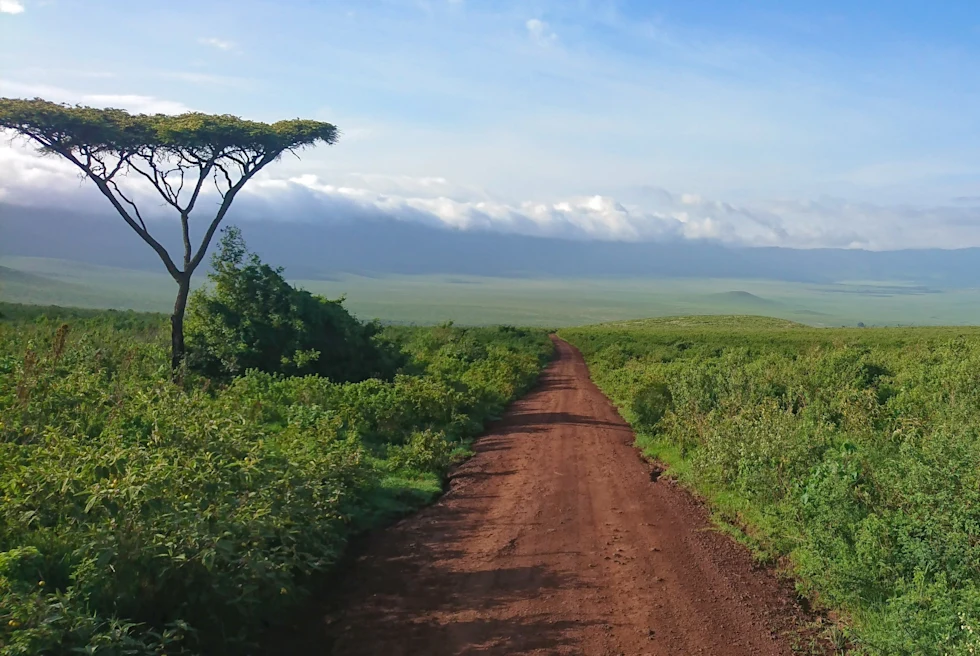
Today is an exciting game drive to the famous Ngorongoro Crater. The main feature of the Ngorongoro Conservation Authority is the Ngorongoro Crater, the world's largest inactive, intact and unfilled volcanic crater featuring highland plains, savanna woodlands and forests. In 1959 it was established as a multi-use land area where the semi-nomadic Maasai pastoralists graze their livestock alongside the craters’ wilderness.
Once there, you will descend into the crater, home to over 20,000 animals. This vast space is home to lions, hyenas, jackals, bat-winged foxes, elephants, hippos, wildebeest, zebras, ostrich and gazelle.
Day 4-7: Serengeti National Park
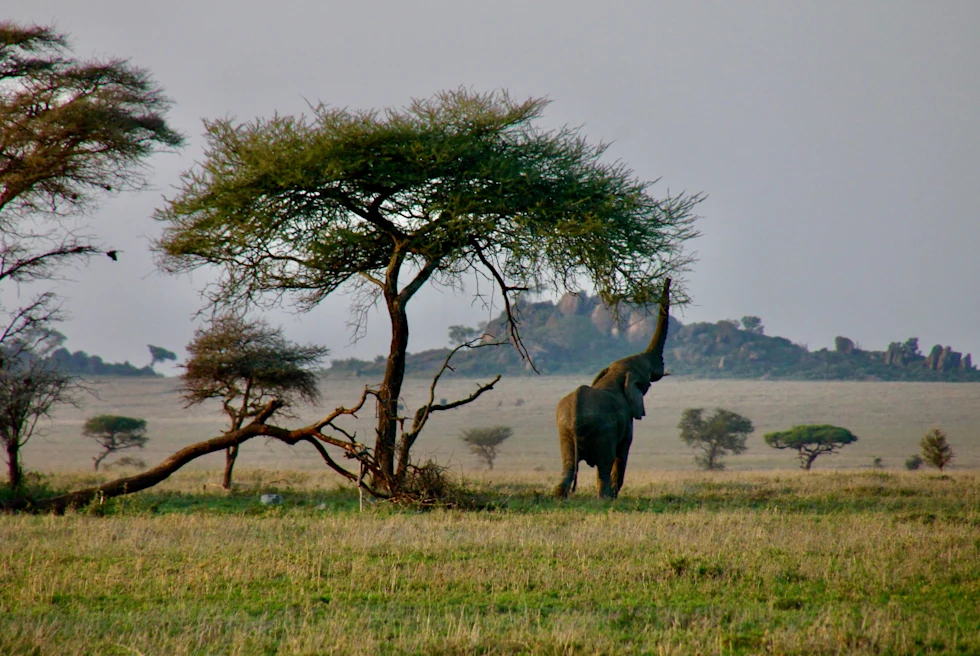
Spend the next three days exploring Serengeti National Park.
Before heading out to Serengeti, stop to visit a Maasai Tribe to learn about their culture. Upon arrival, the men and women dance and sing for their guests and invite others to join too. Once everyone is done dancing, the leader takes everyone on a village tour. You will see inside one of their homes, a small one-room school and where they keep their cattle herd at night. The barrier of the village is made of shrubs with thorns to keep out wild animals. The Maasai people are nomadic and move from place to place for their cattle to feed on the land.
When you enter Serengeti National Park, you will be greeted with more wildlife than you’ve ever seen. The Serengeti is home to lions, zebras, wildebeest, hippos, vultures, hyenas, giraffes, cheetahs, leopards, gazelles, elephants and rhinoceros. Depending on the time of the year, you might even see the great migration.
Lemala Nanyukie is a beautiful property located inside the Serengeti National Park. This completely open-air tented camp is truly unique. They have a reception tent that has an office and gift shop. From there, you walk into another tent with a lounge/bar area. Off to the left is the pool and deck and straight in front is a fire pit. Finally, walk down the steps to the restaurant tent to the right.
However, keep in mind that anytime you walk to the reception, lounge or restaurant, you have to be escorted due to wild animals on the property. At night you may be accompanied by a Maasai warrior with a spear.

A note from Kim
Oh, and the sunsets in the park are the most amazing you'll ever see!
Day 8: Head to Mount Kilimanjaro
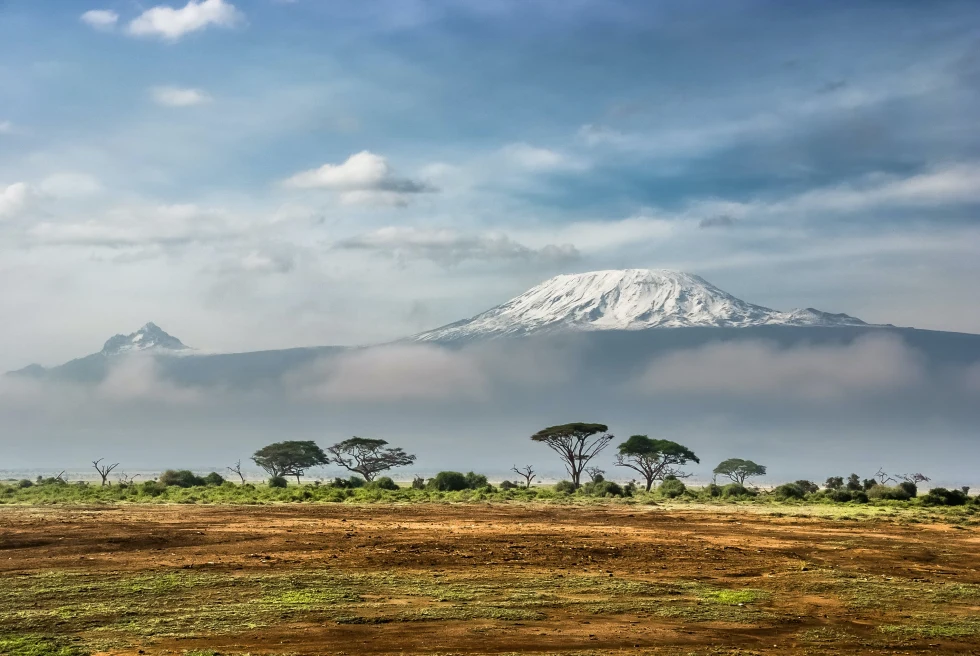
Depart the Serengeti from the Serengeti Seronera Airstrip to the Kilimanjaro airport. Prepare your baggage for the climb to Mount Kilimanjaro, the Machame (Whiskey) Route Lite, as you will need to store what you don't need on the hike. This is a six-day climb. There are longer ones to help yourself acclimate better too.
Day 9: Start at Kilimanjaro – 5,905 feet
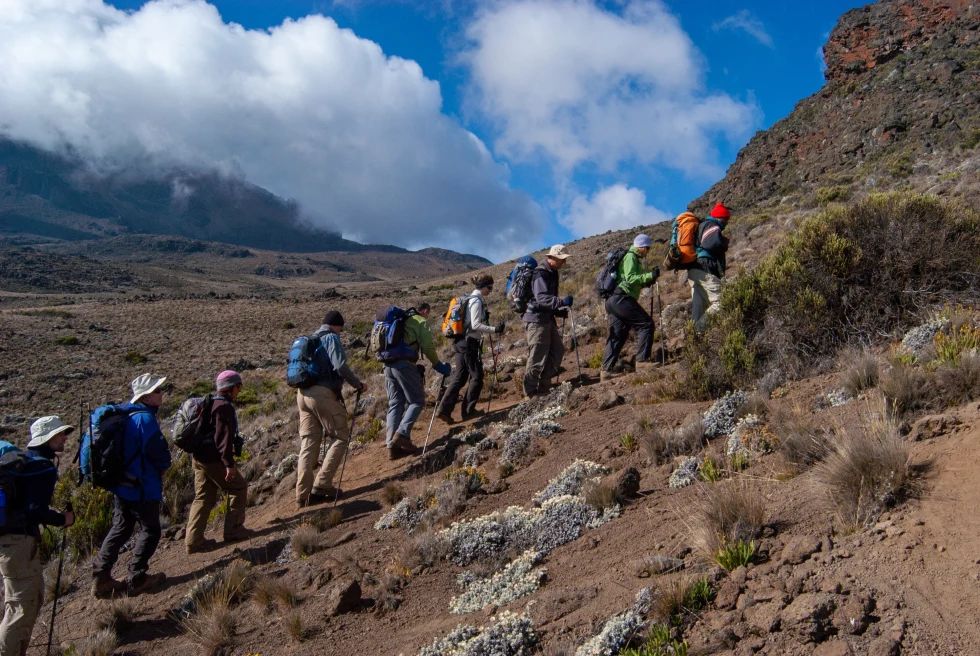
Depart at 8:00 a.m. for Machame village. Upon completion of entry formalities, begin your trek through the dense forest of rubber trees and figs. After a few hours, the tropical forest gives way to tall grass and giant heather. Day one is a six-hour trek with an overnight stay at Machame Camp.
Day 10: 9,301 feet
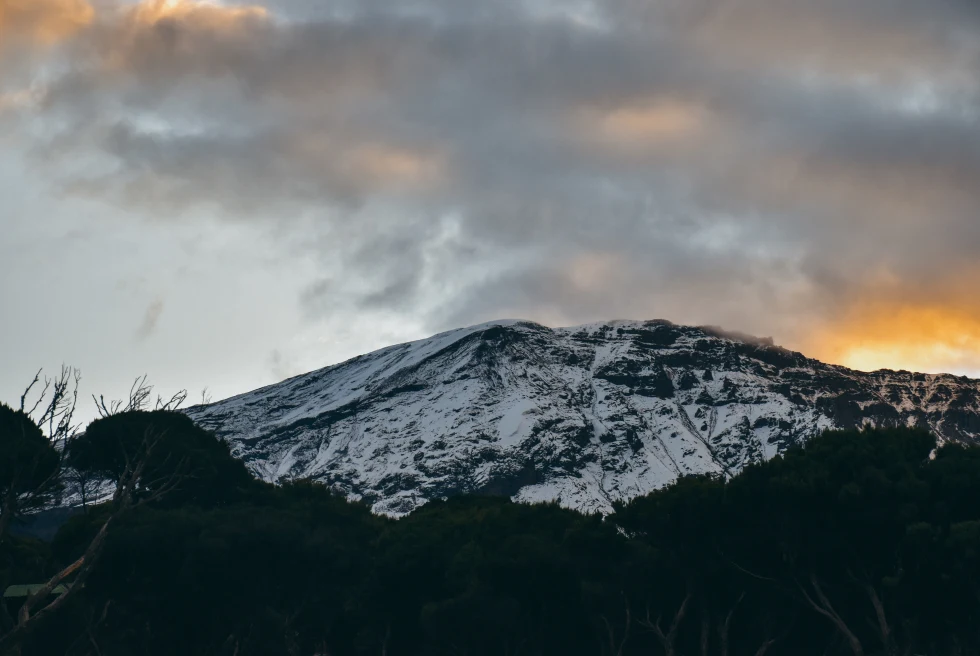
Hike up the steep track through a savannah of tall grass and trees of Giant Heather and Erica. The clouds may clear for a beautiful view of the Western Breach and the glaciers atop which mark the summit: Uhuru Peak. Scramble around large boulders as you enter the moorland zone, marked by the bizarre lobelia and Senecio plants and volcanic rocks draped with lichen beards that protect wild alpine flowers growing at their bases. Reach camp after descending a small valley, crossing a brook, and ascending onto the Shira Ridge. Overnight at Shira Camp.
Day 11: 12,303 feet
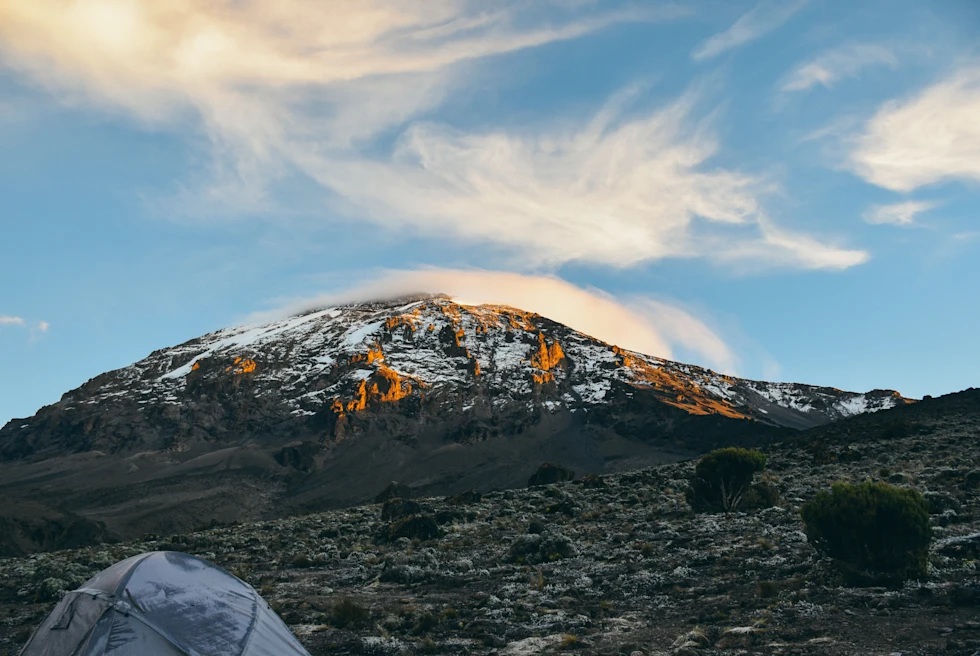
Proceed steadily upward over long ridgelines of the high desert for about four hours, and break for lunch at about 14,500 ft. After lunch, continue to Lava Tower. Lava Tower is a 300-foot-tall volcanic plug that marks an exposed pass at 15,000 ft. In the afternoon, descend the steep track into the Great Barranco Valley. Barranco Camp is set on a flat area enclosed on three sides with vertical valley walls and the Kibo massif itself. Trekking time is about six-to-seven hours. Overnight here.
Day 12: 12,795 feet
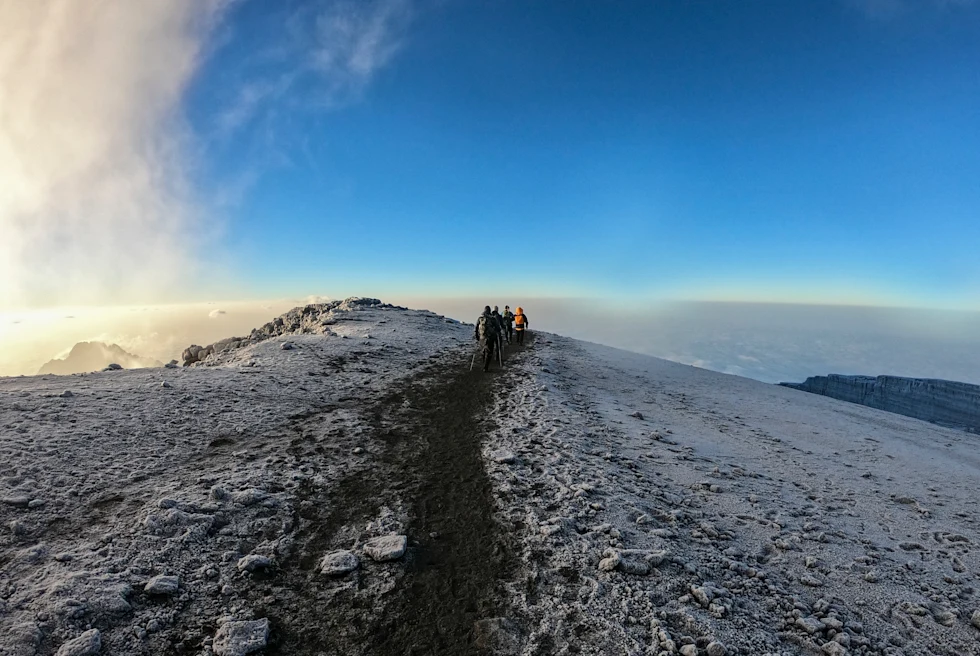
The day begins with a scramble up the steep Barranco Wall, then trekking for three-to-four hours and stopping in the Karanga Valley for a hot lunch. In the afternoon, the trail turns steadily uphill. The temperature grows colder and the landscape more sparse as you near Barafu Camp.
Day 13: Start at 15,200 feet & Summit
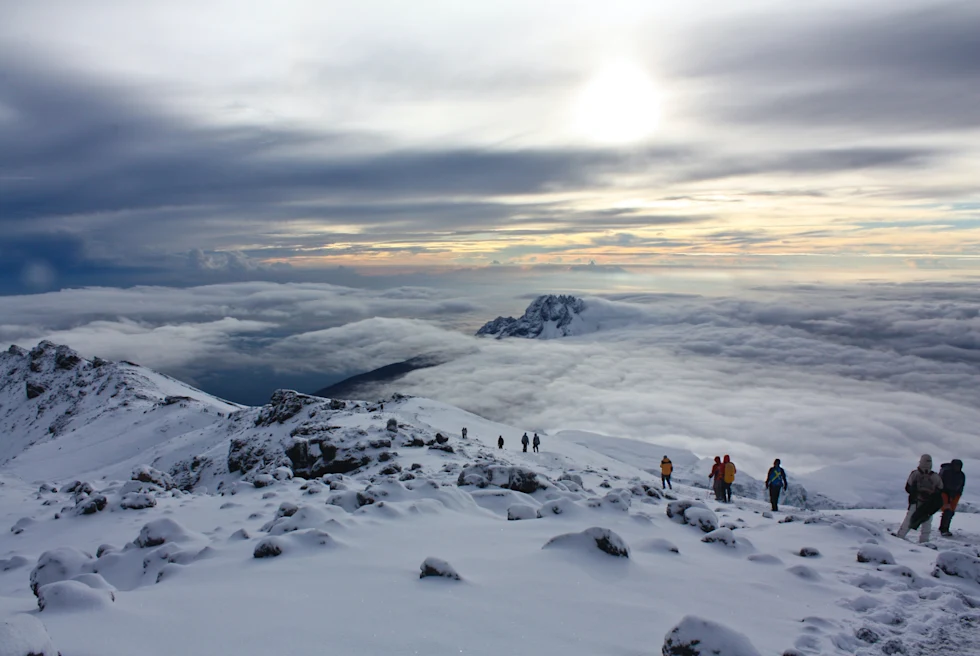
Barafu Camp is set on a small, exposed flat area on a ridge, acting as a base camp from which you can make your summit attempt at midnight. Have dinner before retiring to the tent for rest and a few hours of sleep.
We started climbing at around 1:00 a.m. We made our way up a winding path flanked by the Ratzel and Rebman glaciers. After about 8 hours of walking, we came to the crater's edge, between Stella and Hans Meyer points. We reached the summit just past sunrise. We made it to the top at 19,430 feet! Descend for about three hours to Barafu Camp where you can rest and recuperate. Then, we continued down to Mweka camp for the night. Total trekking on this day was about 16 hours.
Day 14: Make your way down to celebrate
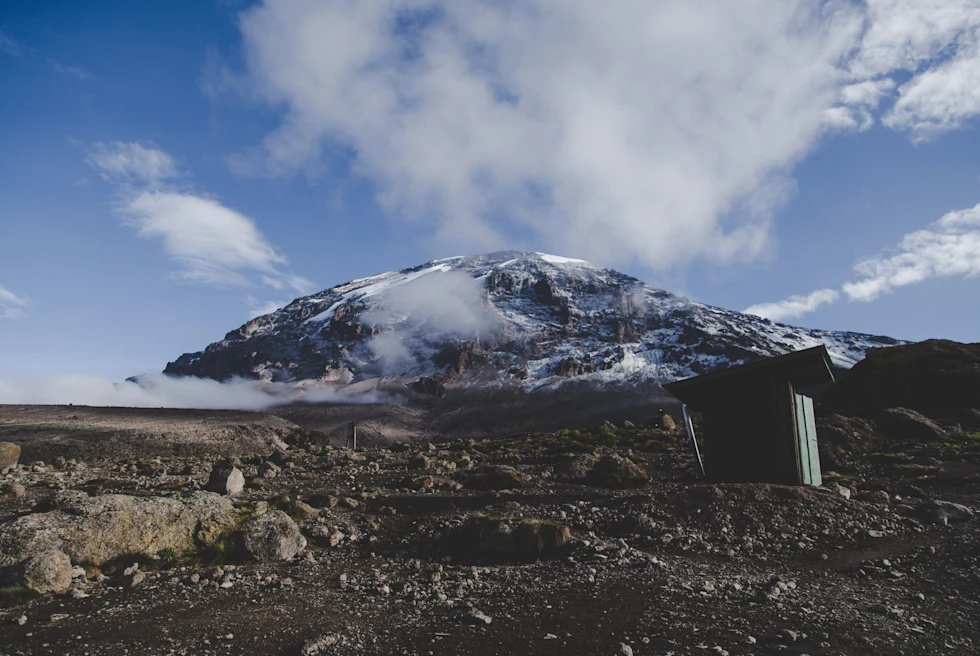
And reflect on the amazing journey and job well-done!

Travel Advisor
Kim Walters

Get in touch with Kim
Did you like this guide? Reach out to customize and book your own experience. Or, just to chat about travel in general.
You can normally expect a response from Kim within a business day or so. You’ll also be subscribed to our travel newsletter (you can unsubscribe at any time).